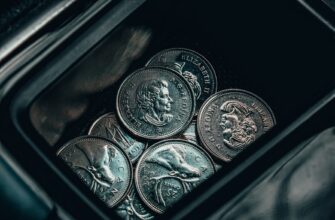- Introduction to Buying Bitcoin in Germany
- Step 1: Choose a Secure Bitcoin Wallet
- Step 2: Select a German-Friendly Exchange
- Step 3: Complete Verification (KYC Process)
- Step 4: Deposit Euros via SEPA Transfer
- Step 5: Execute Your Bitcoin Purchase
- Step 6: Transfer to Your Private Wallet
- German Bitcoin Tax Considerations
- Frequently Asked Questions (FAQs)
- Final Tips for German Investors
Introduction to Buying Bitcoin in Germany
As Europe’s largest economy with progressive cryptocurrency regulations, Germany offers a secure environment for Bitcoin investment. Whether you’re a first-time buyer or expanding your crypto portfolio, this guide covers everything you need to know about purchasing Bitcoin in Germany – from choosing platforms to tax considerations. With clear regulations from BaFin (Federal Financial Supervisory Authority) and widespread adoption, now is an ideal time to enter the German Bitcoin market.
Step 1: Choose a Secure Bitcoin Wallet
Before buying Bitcoin, select a digital wallet to store your cryptocurrency securely. Consider these options:
- Hardware Wallets: Physical devices like Ledger or Trezor (most secure for large holdings)
- Mobile Wallets: Apps such as Exodus or Trust Wallet (convenient for frequent access)
- Exchange Wallets: Built-in storage on platforms like Coinbase (only for small, short-term holdings)
German investors should prioritize wallets with strong encryption and GDPR compliance. Always enable two-factor authentication (2FA).
Step 2: Select a German-Friendly Exchange
Germany has several trusted platforms with Euro support and SEPA transfers. Top choices include:
- Bitpanda: Best for beginners with intuitive interface and BaFin licensing
- Kraken: Low fees (0.16% per trade) and advanced trading features
- Bison: German-owned app by Börse Stuttgart with zero trading fees
- Coinbase: User-friendly but higher fees (1.49%-3.99%)
Key selection criteria: BaFin registration, EUR deposit options, and fee transparency.
Step 3: Complete Verification (KYC Process)
German exchanges require identity verification under Anti-Money Laundering laws. Prepare these documents:
- Valid government ID (Reisepass or Personalausweis)
- Proof of address (recent utility bill or Meldebescheinigung)
- Video selfie for biometric confirmation
Verification typically takes 10-30 minutes. Some platforms like Börse Stuttgart allow instant verification for German IDs.
Step 4: Deposit Euros via SEPA Transfer
Most German exchanges support fee-free SEPA deposits:
- Navigate to your exchange’s ‘Deposit EUR’ section
- Use your German IBAN for transfers (no fees at most banks)
- Transfers usually clear within 1 business day
- Alternative: Instant purchases with SOFORT or credit card (higher fees)
Note: Daily deposit limits range from €1,000 to €100,000 depending on verification level.
Step 5: Execute Your Bitcoin Purchase
Once funded, buy Bitcoin through:
- Market Orders: Instant purchase at current price
- Limit Orders: Set your desired BTC price
- Recurring Buys: Automate purchases (e.g., €50 weekly)
For beginners: Start with small amounts using Bitpanda’s ‘Simple Trade’ feature. Always check the BTC/EUR pair before confirming.
Step 6: Transfer to Your Private Wallet
Critical security step: Move Bitcoin off the exchange immediately after purchase:
- Copy your wallet’s BTC receive address
- Paste into exchange withdrawal section
- Confirm transaction (network fees apply)
- Wait 10-60 minutes for blockchain confirmation
Never store large amounts on exchanges due to hacking risks.
German Bitcoin Tax Considerations
Understand key regulations:
- Tax-free after 1-year holding period (Spekulationsfrist)
- Short-term gains taxed at personal income rate (up to 45%)
- No VAT on Bitcoin purchases
- Staking rewards considered miscellaneous income
Use tax software like Blockpit or CoinTracking for German tax reports.
Frequently Asked Questions (FAQs)
- Is Bitcoin legal in Germany?
- Yes, Bitcoin is fully legal. Germany classifies it as private money (Privates Geld) with clear regulatory frameworks.
- What’s the minimum investment?
- Most exchanges allow purchases from €1. Popular entry points are €50-€100.
- Can I buy Bitcoin anonymously?
- No. German regulations require full KYC verification on licensed platforms. Peer-to-peer options have lower limits.
- How long do SEPA transfers take?
- Typically 1 business day. Some services like N26 offer instant transfers to select exchanges.
- Are German banks crypto-friendly?
- Most major banks (Commerzbank, Sparkasse) allow SEPA transfers to exchanges. Neo-banks like N26 and Vivid are particularly crypto-optimized.
- What if I lose my Bitcoin?
- Transactions are irreversible. Use hardware wallets and secure seed phrases. Consider a crypto inheritance solution for significant holdings.
Final Tips for German Investors
Start small with €50-€100 test purchases before larger investments. Enable all security features on exchanges and wallets. Track your transactions for tax purposes using dedicated software. Remember: Bitcoin is volatile – never invest more than you can afford to lose. With Germany’s robust regulatory environment and multiple secure platforms, entering the Bitcoin market has never been safer.








